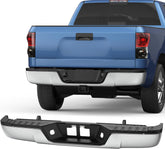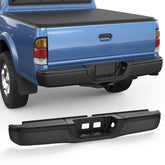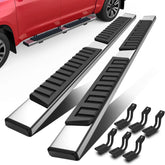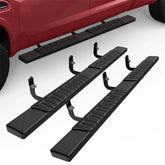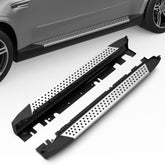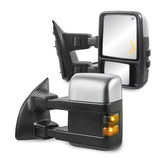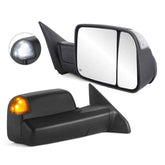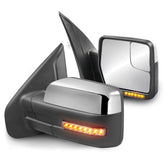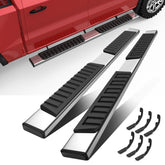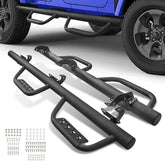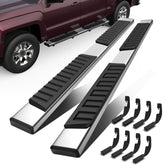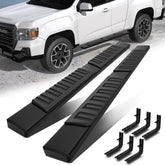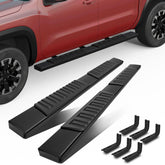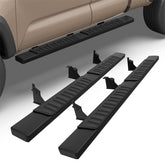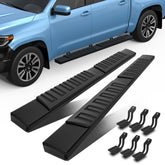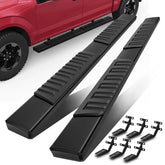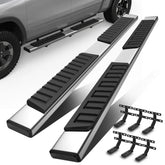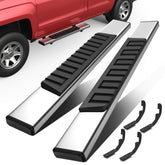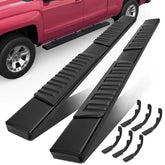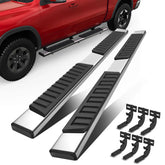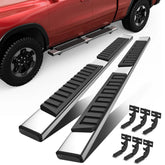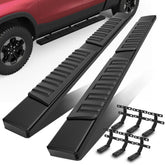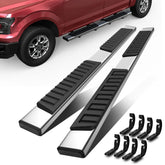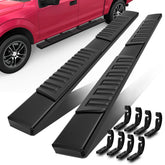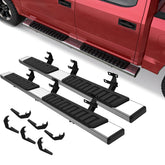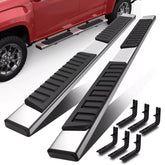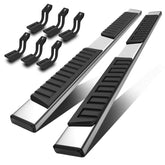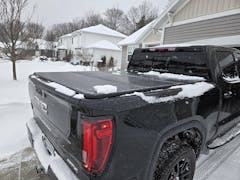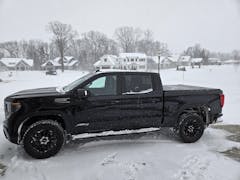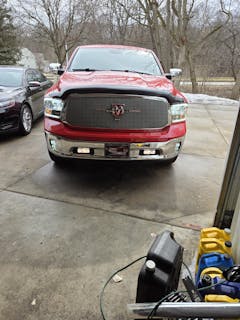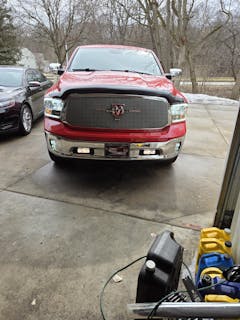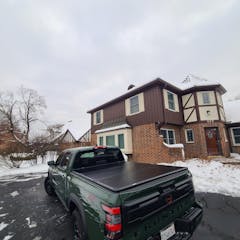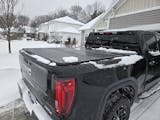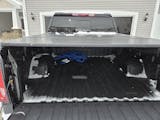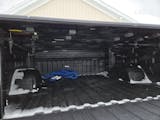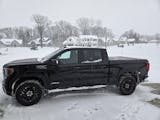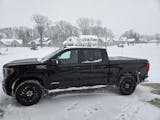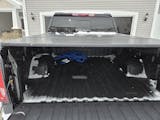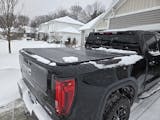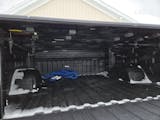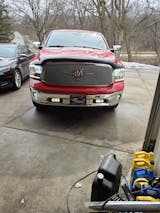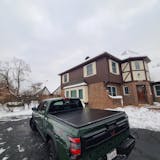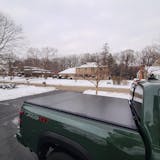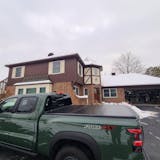Filter
51 results
20
- 10
- 15
- 20
- 25
- 30
- 50
Featured
- Featured
- Best selling
- Alphabetically, A-Z
- Alphabetically, Z-A
- Price, low to high
- Price, high to low
- Date, old to new
- Date, new to old
Sort
Sort by:
- Featured
- Best selling
- Alphabetically, A-Z
- Alphabetically, Z-A
- Price, low to high
- Price, high to low
- Date, old to new
- Date, new to old
-
6" Running Boards For 2019-2023 Chevy Silverado GMC Sierra Crew Cab 6 inch Side Step LH+RHVendor: MOSTPLUSMOSTPLUS running boards allow you to enter and exit your vehicle more easily. Additional benefits of running boards include protection from random road debris and a useful tool to help keep your vehicle cleaner. They also enhance the look of your vehicle. SPECIFICATION:...
- $198.99
- $198.99
- Unit price
- / per
-
3" Running Boards Bolt-on Side Steps for 2018-2024 Jeep Wrangler JL 4 Door, Black Powder Coated Nerf BarVendor: MOSTPLUSWith their superior material, rust-resistance, slip-resistant step pads, 3" wide step area, and bolt-on installation process, MOSTPLUS running boards provide maximum safety and convenience. SPECIFICATION: Brand: MOSTPLUS Warranty: 1 Year Material: Carbon Steel Surface Finish: Black Powder Coated Width: 3-inch Step Pad Round Drop Design Each Side...
- $198.99
- $198.99
- Unit price
- / per
-
6" Running Boards For 2007-2018 Chevy Silverado/GMC Sierra 1500 2500HD 3500HD Crew Cab 6 inch Stainless Steel Nerf Bars Side Step LH+RHVendor: MOSTPLUSMOSTPLUS running boards provide maximum safety and convenience with their superior materials, rust resistance, slip-resistant step pads, 6" wide step area, and an easy installation process. SPECIFICATION: Brand: MOSTPLUS Warranty: 1 Year Material: ABS, Stainless Steel Color: Silver & Black Surface Finish: Polished Width: 6-inch Rectangle...
- $203.99
$203.39- $203.99
- Unit price
- / per
-
6" Running Boards For 2015-2023 Chevrolet Colorado GMC Canyon Extended Cab Nerf Bar 6 inches Aluminum Side StepsVendor: MOSTPLUSWith their superior material, rust-resistance, slip-resistant step pads, 6" wide step area, and easy installation process, MOSTPLUS running boards provide maximum safety and convenience. The ideal addition to your Nissan Frontier truck is MOSTPLUS running boards and nerf bars. SPECIFICATION: Brand: MOSTPLUS Warranty:...
- $198.99
- $198.99
- Unit price
- / per
-
6" Running Boards For 2005-2023 Nissan Frontier Crew Cab Nerf Bar 6 inches Aluminum Alloy Side StepsVendor: MOSTPLUSWith their superior material, rust-resistance, slip-resistant step pads, 6" wide step area, and easy installation process, MOSTPLUS running boards provide maximum safety and convenience. The ideal addition to your Nissan Frontier truck is MOSTPLUS running boards and nerf bars. SPECIFICATION: Brand: MOSTPLUS Warranty:...
- $193.99
- $193.99
- Unit price
- / per
-
6" Running Board For 2005-2023 Toyota Tacoma Access Cab Aluminum Alloy Nerf Bars Side StepVendor: MOSTPLUSWith their superior material, rust-resistance, slip-resistant step pads, 6" wide step area, and easy installation process, MOSTPLUS running boards provide maximum safety and convenience. The ideal addition to your Toyota Tacoma Access Cab truck is MOSTPLUS running boards and nerf bars. SPECIFICATION: Brand: MOSTPLUS...
- $191.99
$209.99- $191.99
- Unit price
- / per
-
6" Running Boards For 2005-2023 Toyota Tacoma Double Cab 6 inch Stainless Steel Nerf Bars Side StepVendor: MOSTPLUSWith their superior material, rust-resistance, slip-resistant step pads, 6" wide step area, and easy installation process, MOSTPLUS running boards provide maximum safety and convenience. The ideal addition to your Toyota Tacoma Double Cab truck is MOSTPLUS running boards and nerf bars. SPECIFICATION: Brand:...
- $191.99
- $191.99
- Unit price
- / per
-
6" Running Boards For 2007-2021 Toyota Tundra Double Cab 6 inches Nerf Bars Side StepVendor: MOSTPLUSWith their superior material, rust-resistance, slip-resistant step pads, 6" wide step area, and easy installation process, MOSTPLUS running boards provide maximum safety and convenience. The ideal addition to your Toyota Tundra Double Cab truck is MOSTPLUS running boards and nerf bars. SPECIFICATION: Brand:...
- $198.99
- $198.99
- Unit price
- / per
-
6" Aluminum Running Boards For 2015-2023 F150 Super Crew Cab & 2017-2022 F250/F350 Super Duty Crew Cab 6 inch Nerf Bar Side Step LH+RHVendor: MOSTPLUSMOSTPLUS running boards provide maximum safety and convenience with their superior materials, rust resistance, slip-resistant step pads, 6" wide step area, and an easy installation process. SPECIFICATION: Brand: MOSTPLUS Warranty: 1 Year Material: Black Aluminum Alloy Surface Finish: Black Powder Coated Width: 6-inch Universal Rectangle Step...
- $189.99
- $189.99
- Unit price
- / per
-
6" Running Boards For 2019-2023 Dodge Ram 1500 (New Body Style) Crew Cab 6 inch Stainless Steel Side Step Nerf BarsVendor: MOSTPLUSMOSTPLUS running boards provide maximum safety and convenience with their superior materials, rust resistance, slip-resistant step pads, 6" wide step area, and an easy installation process. SPECIFICATION: Brand: MOSTPLUS Warranty: 1 Year Material: Built From Durable, Rust-Resistant, T304 Stainless Steel ABS Plastic Covered...
- $198.99
- $198.99
- Unit price
- / per
-
6" Running Boards For 2019-2023 Chevy Silverado GMC Sierra 1500/2500 HD/3500 HD Regular Cab/Standard Cab 2-Door 6 inch Stainless Steel Side Steps LH+RHVendor: MOSTPLUSMOSTPLUS running boards allow you to enter and exit your vehicle more easily. Additional benefits of running boards include protection from random road debris and a useful tool to help keep your vehicle cleaner. They also enhance the look of your vehicle. With their...
- $168.99
- $168.99
- Unit price
- / per
-
6" Running Boards Bar For 2019-2023 Silverado Sierra 1500/2500 HD/3500 HD Extended/Double Cab 6 inch Side StepsVendor: MOSTPLUSMOSTPLUS running boards provide maximum safety and convenience with their superior materials, rust resistance, slip-resistant step pads, 6" wide step area, and an easy installation process. With their superior material, rust-resistance, slip-resistant step pads, 6" wide step area, and easy installation process, MOSTPLUS running...
- $189.99
- $189.99
- Unit price
- / per
-
6" Running Boards For 2009-2018 Dodge Ram 1500 & 2010-2022 Ram 2500 3500 Crew Cab Side Step Nerf BarVendor: MOSTPLUSMOSTPLUS running boards allow you to enter and exit your vehicle more easily. Additional benefits of running boards include protection from random road debris and a useful tool to help keep your vehicle cleaner. They also enhance the look of your vehicle. SPECIFICATION:...
- $188.99
- $188.99
- Unit price
- / per
-
6" Running Boards For 2009-2018 Ram 1500 & 2019-2023 Ram 1500 Classic Extended/Quad Cab 6 inch Stainless Steel Side Step Nerf BarsVendor: MOSTPLUSMOSTPLUS running boards allow you to enter and exit your vehicle more easily. Additional benefits of running boards include protection from random road debris and a useful tool to help keep your vehicle cleaner. They also enhance the look of your vehicle. With their...
- $187.99
- $187.99
- Unit price
- / per
-
6" Running Boards Side Steps For 2019-2023 Dodge Ram 1500 Quad Cab/Extended Cab LH+RHVendor: MOSTPLUSDetails: Brand: MOSTPLUS Warranty: 1 Year Fitment Type: Direct Replacement Placement on Vehicle: Left, Right Specifications: Type: Running Board Color: Black Shape: Rectangular Finish: Polished Material: ABS, Black Aluminum Alloy Length: Approx. 77" Width: 6" Feature: Easy, No-Drill Installation Bolts Right To Factory Mounting Points...
- $187.99
- $187.99
- Unit price
- / per
-
6" Running Boards For 2009-2014 Ford F150 F-150 Super Crew Cab Stainless Steel Side Step Nerf BarsVendor: MOSTPLUSMOSTPLUS running boards allow you to enter and exit your vehicle more easily. Additional benefits of running boards include protection from random road debris and a useful tool to help keep your vehicle cleaner. They also enhance the look of your vehicle. With their...
- $219.99
- $219.99
- Unit price
- / per
-
6" Running Boards For 2009-2014 Ford F150 Super Crew Cab 6 inch Aluminum Alloy Side Step Nerf BarsVendor: MOSTPLUSMOSTPLUS running boards provide maximum safety and convenience with their superior materials, rust resistance, slip-resistant step pads, 6" wide step area, and an easy installation process. With their superior material, rust-resistance, slip-resistant step pads, 6" wide step area, and easy installation process, MOSTPLUS running...
- $209.99
$209.99- $209.99
- Unit price
- / per
-
6" Running Boards For 2015-2023 Ford F150 Super Crew Cab & 2017-2022 F250 F350 Super Duty Crew Cab Side Step Nerf BarsVendor: MOSTPLUSMOSTPLUS running boards allow you to enter and exit your vehicle more easily. Additional benefits of running boards include protection from random road debris and a useful tool to help keep your vehicle cleaner. They also enhance the look of your vehicle. With their...
- $189.99
$199.95- $189.99
- Unit price
- / per
-
6" Running Boards Side Step Bars For 2015-2022 Colorado Canyon Crew Cab LH+RHVendor: MOSTPLUSMOSTPLUS running boards allow you to enter and exit your vehicle more easily. Additional benefits of running boards include protection from random road debris and a useful tool to help keep your vehicle cleaner. SPECIFICATION: Brand: MOSTPLUS Warranty: 1 Year Material: Built From...
- $193.99
- $193.99
- Unit price
- / per
-
6" Running Boards For 2007-2021 Toyota Tundra Crew Max Cab (4 Full Size Doors) Stainless Steel Side StepsVendor: MOSTPLUSMOSTPLUS running boards allow you to enter and exit your vehicle more easily. Additional benefits of running boards include protection from random road debris and a useful tool to help keep your vehicle cleaner. They also enhance the look of your vehicle. With their...
- $198.99
- $198.99
- Unit price
- / per


